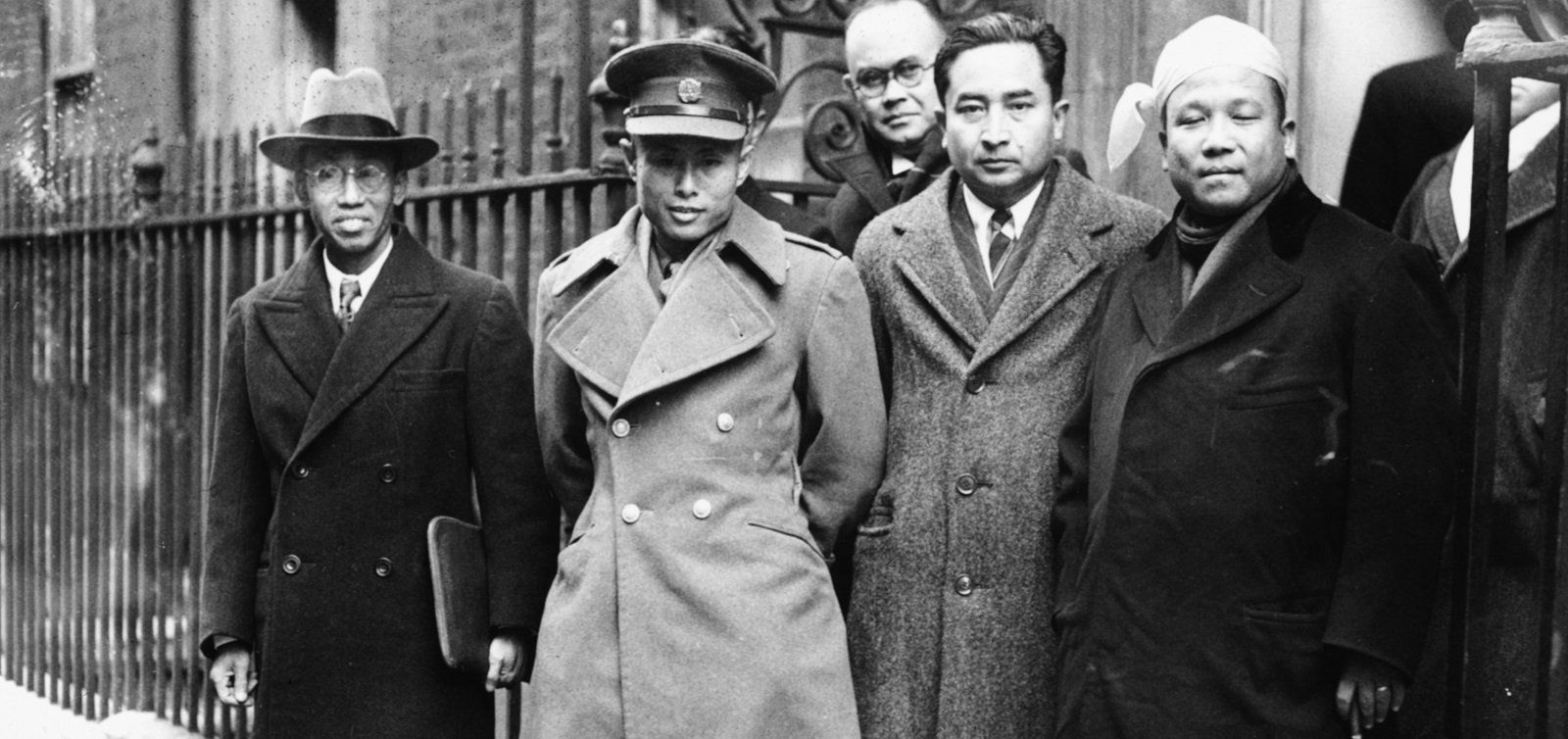Aung San
The father of Modern Myanmar

Here's a time line of Gen. Aung San's life:
- 1915 - Born in Natmauk, Magway District, in central Burma
- 1933 - After he entered Rangoon University in 1933, he quickly became a student leader. He was elected to the executive committee of the Rangoon University Students' Union (RUSU). He then became editor of the RUSU's magazine Oway
- 1936 -Threatened with expulsion from the university, along with U Nu, for refusing to reveal the name of the author of the article "Hell Hound at Large", which criticized a senior university official. This led to the Second University Students' Strike; the university authorities subsequently retracted the expulsions.
- 1938 - Elected president of both the Rangoon University Student Union (RUSU) and the All-Burma Students Union (ABSU), formed after the strike spread to Mandalay. In the same year, the government appointed him as a student representative on the Rangoon University Act Amendment Committee. Dobama Asiayone protests In October, He left his law classes and entered national politics. At this point, he was anti-British and staunchly anti-imperialist.He became a Thakin (lord or master—a politically motivated title that proclaimed that the Burmese people were the true masters of their country, not the colonial rulers who had usurped the title for their exclusive use) when he joined the Dobama Asiayone (We Burmans Association).
- 1940 - Attended the Indian National Congress Assembly in Ramgarh, India. However, the government issued a warrant for his arrest due to Thakin attempts to organize a revolt against the British and he had to flee Burma. He went first to China, seeking assistance from the nationalist government of the Kuomintang, but he was intercepted by the Japanese military occupiers in Amoy, and was convinced by them to go to Japan instead.
- 1941 - Returned to Burma, with an offer of arms and financial support from the Fumimaro Konoe government of Japan. He returned briefly to Japan to receive more military training, along with the first batch of young revolutionaries who came to be known as the Thirty Comrades. On 26 December, he founded the Burma Independence Army (BIA) in Bangkok, Thailand.
- 1942 - He was later invited to Japan, and was presented with the Order of the Rising Sun by Emperor Hirohito.
- 1943 - Appointed War Minister in Japanese controlled puppet government, and the army was again renamed, this time as the Burma National Army (BNA). He soon became doubtful about Japanese promises of true independence and of Japan's ability to win the war. He made plans to organize an uprising in Burma and made contact with the British authorities in India.
- 1945 - Led the BNA in a revolt against the Japanese occupiers and helped the Allies defeat the Japanese. In September He was offered the rank of Deputy Inspector General of the Burma Army, but he declined it in favor of becoming a civilian political leader and the military leader of the Pyithu yèbaw tat (People's Volunteer Organisation or PVO)
- 1946 - Became the President of the AFPFL following the return of civil government to Burma the previous October. In September, he was appointed Deputy Chairman of the Executive Council or 5th Premier of British-Burma Crown Colony by the new British Governor Sir Hubert Rance, and was made responsible for defence and external affairs. Rance and Mountbatten took a very different view from the former British Governor, Sir Reginald Dorman-Smith, and also Winston Churchill, who had called Aung San a "traitor rebel leader".
- 1947 - On 19 July 1947, a gang of armed paramilitaries of former Prime Minister U Saw broke into the Secretariat Building in downtown Rangoon during a meeting of the Executive Council (the shadow government established by the British in preparation for the transfer of power) and assassinated Aung San and six of his cabinet ministers. U Saw was subsequently tried and hanged.
"Every thought, every word, and every action that adds to the positive and the wholesome is a contribution to peace. Each and every one of us is capable of making such a contribution. Let us join hands to try to create a peaceful world where we can sleep in security and wake in happiness."
-- Aung San